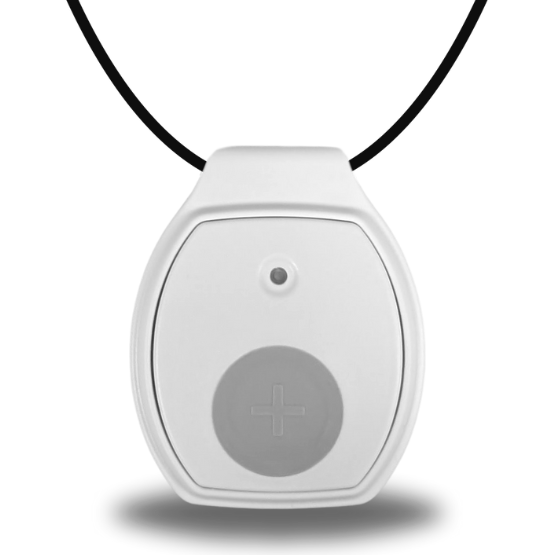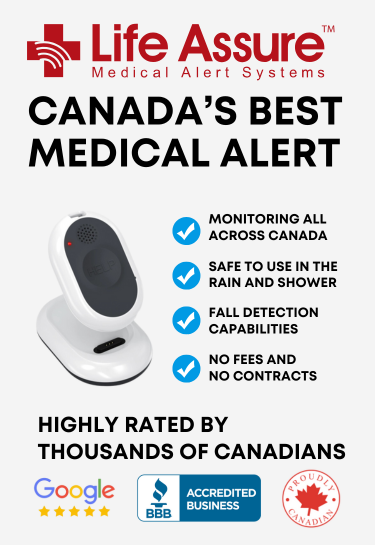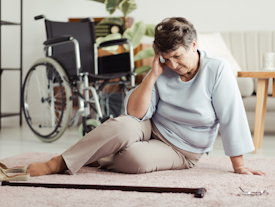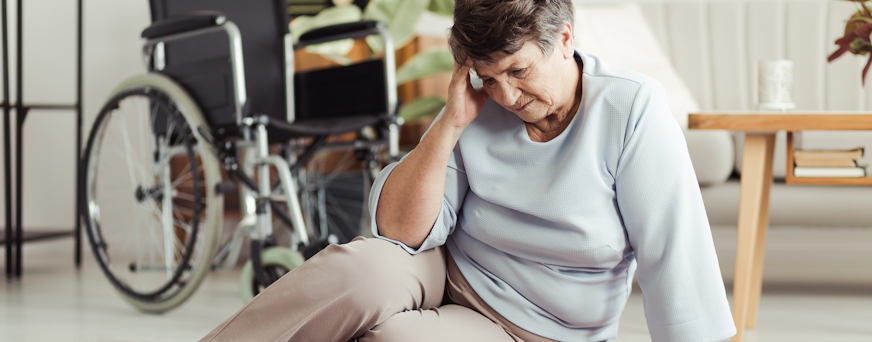Can Pain Cause High Blood Pressure In Seniors?
Understanding how pain can cause high blood pressure is crucial for Canadian seniors. Chronic conditions like arthritis are common, and their discomfort could have more than just physical implications. It's important to understand whether pain can cause high blood pressure in seniors and get insights into recognizing signs and discussing them with healthcare providers. By exploring research and practical strategies, seniors and caregivers can better manage pain and maintain healthy blood pressure levels.
Life Assure Product Quiz
Find The Perfect Medical Alert Device
Take our 30 second quiz and discover which Life Assure medical alert device is the right fit for you or a loved one.
Life Assure Product Quiz
Find The Perfect Medical Alert Device
Take our 30 second quiz and discover which Life Assure medical alert device is the right fit for you or a loved one.
How Pain Impacts Blood Pressure In Seniors
When you stub your toe or twist your ankle, your body sends out an alarm in the form of pain. This discomfort isn't just an inconvenience—it's your body's way of saying, "Hey, something's not right here!" For seniors, understanding how pain affects the body is key to managing overall health, including blood pressure.
When pain strikes, your body kicks into high gear. It releases stress hormones like adrenaline and cortisol, triggering the "fight or flight" response. This can cause your heart to race and your blood pressure to spike temporarily. It's like your body prepares for action, even if you're just sitting in your favourite armchair.
Pain often brings along its sidekick: inflammation. While inflammation helps heal injuries, too much of it for too long can lead to health issues, including higher blood pressure. This is especially true for seniors, whose bodies might not bounce back from these responses as quickly as they used to.
For older adults dealing with ongoing pain from conditions like arthritis or back problems, these bodily reactions can become a constant presence. Over time, this persistent state of alert can elevate blood pressure, potentially leading to more serious health concerns.
The Relationship Between Pain And Blood Pressure
Pain and high blood pressure often go hand in hand, especially for seniors. But how exactly are these two connected?
When you're in pain, your body goes into defence mode. It releases stress hormones like adrenaline, making your heart race and blood pressure climb. For older adults, this reaction can be more intense and last longer, potentially leading to ongoing blood pressure issues.
Think of it like this: pain triggers your body's alarm system, the sympathetic nervous system. This system prepares you for action by speeding up your heart rate and tightening your blood vessels. While this response is helpful in the short term, chronic pain can keep this system constantly active, contributing to persistent high blood pressure.
Sleep also plays a vital role here. Many seniors struggle with sleep due to pain, creating a vicious cycle. Poor sleep leads to more stress and fatigue, which can worsen pain and blood pressure problems.
While scientists are still unraveling the complexities of this relationship, one thing is clear: managing pain effectively is key to keeping blood pressure in check, particularly for older adults. If you're dealing with ongoing pain, it's worth discussing with your doctor how it might be affecting your blood pressure.
Factors Contributing To High Blood Pressure In Seniors
Blood pressure tends to creep up as we age, but several key factors can push it into the danger zone for seniors.
The aging process itself is a major culprit. Over time, blood vessels lose their springiness, becoming stiffer and less flexible. This makes it harder for the heart to pump blood efficiently, often leading to higher pressure in the arteries.
Chronic pain, a common companion in later years, doesn't just hurt—it can also drive up blood pressure. Conditions like arthritis or persistent back pain keep the body in a constant state of stress, triggering the release of hormones that can elevate blood pressure over time.
Lifestyle changes that often accompany aging play a role, too. Many seniors find themselves less active, perhaps eating more convenience foods high in salt or dealing with increased stress from health concerns or life changes. All of these can contribute to rising blood pressure readings.
Surprisingly, some medications prescribed to treat other health issues in older adults can have the unintended effect of raising blood pressure. Seniors must review their medications regularly with their healthcare providers to catch any potential issues.
Understanding these factors gives seniors and their caregivers a roadmap for managing blood pressure effectively. By addressing chronic pain, staying active, watching salt intake, and managing medications, many older adults can keep their blood pressure in check and maintain better overall health.
Managing Pain To Control Blood Pressure
Tackling pain isn't just about feeling better—it's a key part of keeping blood pressure in check for seniors. Here are some practical ways to manage discomfort and potentially lower those blood pressure numbers.
Medication often plays a central role in pain management. While over-the-counter options like acetaminophen can help, some seniors may need prescription medications. Working closely with your doctor is essential, as certain pain relievers can affect blood pressure. Your healthcare provider can help you find the right balance.
Physical therapy can be a game-changer. A skilled therapist can design exercises tailored to your needs, helping improve mobility and reduce pain. This approach eases discomfort and helps lower stress levels—a win-win for blood pressure control.
Don't underestimate the power of lifestyle changes. Simple activities like a daily walk in the park, a gentle swim, or a senior-friendly yoga class can work wonders. These exercises help manage weight, reduce stress, and boost heart health. Pair this with a diet rich in colourful fruits, vegetables, and whole grains while cutting back on salt, and you're on the right track.
You shouldn't overlook mindfulness and relaxation techniques. Practices like meditation or deep breathing can help manage stress, potentially easing pain and blood pressure concerns.
When To Seek Medical Advice
It's important to recognize when pain might be affecting your blood pressure. Be mindful of persistent headaches, unexplained dizziness, or a sudden jump in your blood pressure readings. These could be signs that pain is impacting your cardiovascular health.
Don't hesitate to reach out to your healthcare team. They can offer personalized advice and adjust your treatment plan as needed. Regular check-ups are vital, as they allow your doctor to track changes in your health and fine-tune your pain and blood pressure management strategies.
Conclusion
Understanding the link between pain and blood pressure is crucial for seniors. By taking a proactive approach to pain management—whether through medication, physical therapy, lifestyle changes, or relaxation techniques—you can potentially keep your blood pressure in a healthier range.
Remember, your health journey is unique. Work closely with your healthcare providers, stay on top of regular check-ups, and don't hesitate to ask questions. With the right approach, you can tackle pain, manage blood pressure, and enjoy a better quality of life in your golden years.











 Get Help With The Push Of A Button
Get Help With The Push Of A Button















